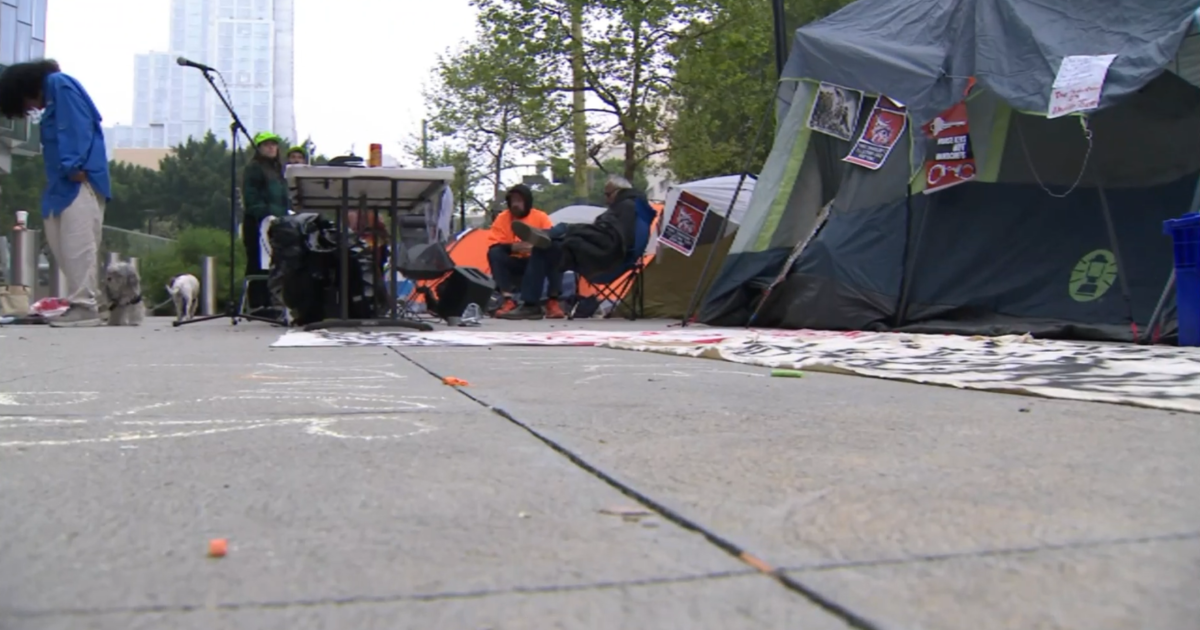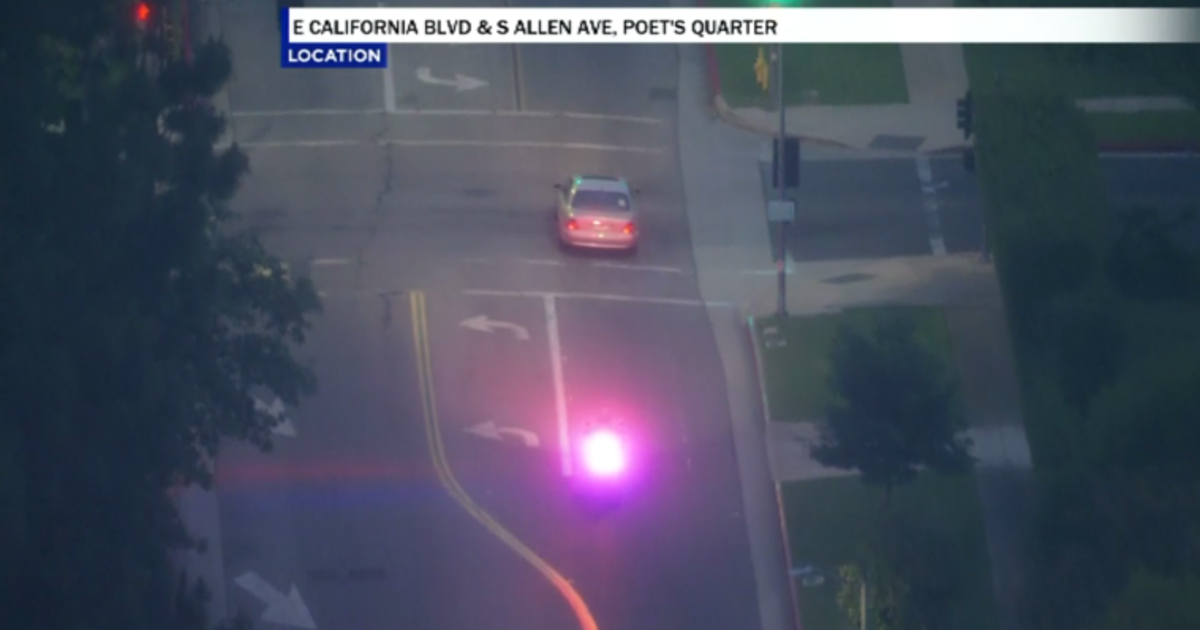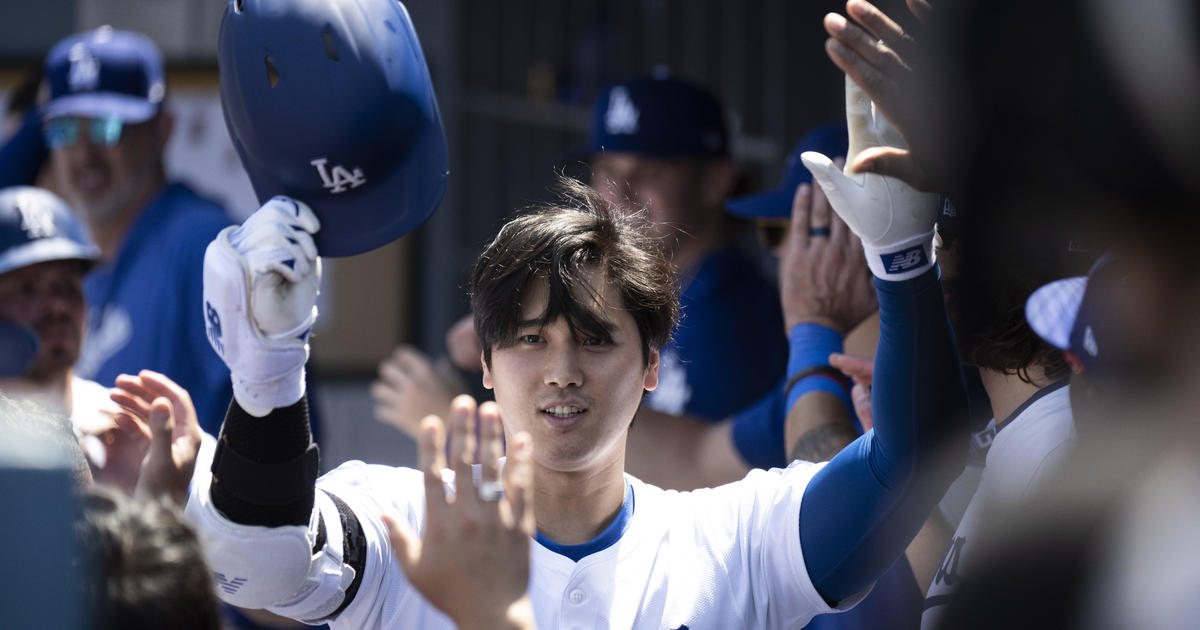Paying It Forward: Woman's Donated Kidney Will Not Only Save Sister's Life, But Dozens More
WESTWOOD (CBSLA.com) — An effort to save one life has led to a chain of events that changed 22 others.
CBS2's Lisa Sigell was there Tuesday as two sisters rolled into surgery at Ronald Reagan UCLA Medical Center: one to save the life of a total stranger, the other to receive the gift of a new life through a program called a kidney chain.
The Kidney Exchange Program is based on strangers helping strangers until the kidney donations come full circle.
In this case, Julia Shostak, 21, who's not a match for her sister, Angela Moro, 27, is donating her kidney to someone in New Hampshire so that her sister can be matched to a kidney elsewhere.
The average wait time for a kidney from a deceased donor averages 8-10 years. Because of Julia's donation, Angela only waited seven months for her transplant.
"Are you ready?" Angela asked as the sisters headed into the operating room.
"Yeah," Julia replied.
"You're doing a beautiful thing," transplant surgeon Jeffery Veale told Julia. "You obviously must love your sister."
"I don't want to see her in pain anymore. Who wouldn't do this for family?" Julia asked.
"There's nervousness because I've got two daughters going into surgery, and it's kind of scary," said the women's father, John Moro.
Angela went in and received a kidney from a donor in New York in what was her second kidney transplant.
For reasons doctors still don't understand, her kidneys first stop functioning when she was 8.
A transplant back then gave her a second change at an active life.
She was able to live her dream of becoming a trauma nurse.
But 18 years later, Angela's transplanted kidney stopped working.
For the past seven months, Angela has spent large portions of her week hooked up to a dialysis machine, which filters her blood before circulating it back into her body.
"It's not fun," Angela said.
"Angela is on dialysis and dialysis is fine. It keeps you alive, but it's almost half a life," Veale said.
Julia wanted to give her own kidney, but the sisters weren't a match. But she was a match for someone else.
The sisters joined a kidney chain with 22 patients across the U.S.
A courier delivered Angela's kidney from New York right before her transplant.
Moments later, Julia's kidney was boxed up and prepared for shipment to her recipient in New Hampshire.
Meanwhile, in New Hampshire, a kidney was being donated and sent to a patient in South Caroline. It goes on and on, state by state, until 22 lives — half giving, half receiving — are changed forever.
Sigell checked in with Julia and Angela two days after their surgeries.
"So much better," Angela said. "I knew I felt bad before, but I didn't know how much better I could feel."
"I'm happy I was able to help her out, saving not just her life but 11 lives being changed through all of this," Julia said.
"I know thank you is kind of the lamest thing in life to say, but just thank you from the bottom of my heart," Angela said to her sister. "It's given me a whole new life."
Angela will be able to meet her donor, and Julia her recipient, in about a year.
For more information on UCLA's Kidney Exchange program, click here.
To learn more about paired donations in general, visit paireddonation.org.
Produced by Gerri Shaftel Constant, CBS2/KCAL9 Medical Producer.
RELATED STORY: UCLA Kidney Transplant Recipients, Donors Unite For Holiday Celebration



